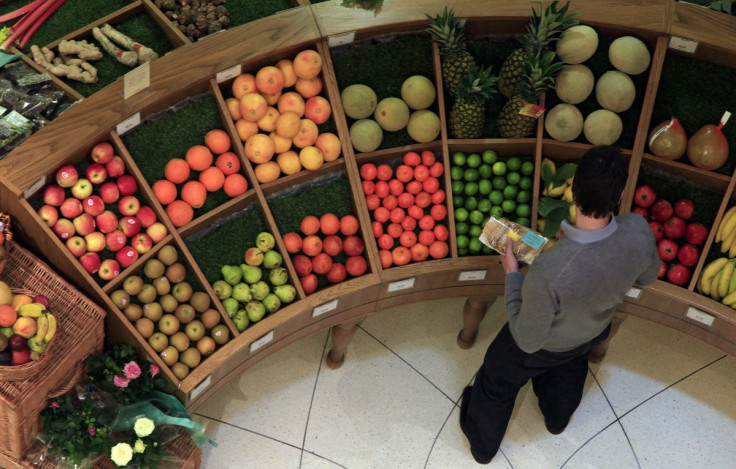Grocery sales on the rise as customers turn to healthy foods early in 2016, Kantar says

The British grocery market returned to growth across December and January, thanks to strong performances in the fresh and health food departments, figures released on Tuesday (9 February) showed.
According to data published by market research group Kantar, grocery sales rose 0.2% year on year in the 12 weeks to 31 January, driven by a 5% gain in the sale of both fruit and vegetables as customers looked to start the year on a healthy note, while nuts, fresh poultry and fish all registered a similar increase.
Among individual retailers, the Co-operative was the fastest growing non-discounter for the first time since 2011, as the group recorded a 1.4% year-on-year increase in sales over the period, with its own-brand sales rising by 7%, thanks to a strong display in the fresh and chilled sectors.
The group, whose market share remained unchanged at 5.9%, is the most frequently visited major supermarket, with their customers shopping there an average of almost 19 times over the past 12 weeks, compared with a market average of 11 visits.
Tesco's revenue fell by 1.6%, but the embattled FTSE 100 group showed signs of improvement as it posted its best figures since September of last year, while Sainsbury's increased its sales for the sixth consecutive period, growing by 0.6% and improving its market share by 0.1 percentage points to 16.8%.
Waitrose marked its 91st consecutive period of growth – the longest current run of success for any supermarket – as sales increased 0.1% compared with the corresponding period 12 months ago, while its market share remained unchanged at 5.2%.
Morrisons' market share fell by 0.3 percentage points to 10.8%, while sales declined 2.2%, a decline which Kantar said reflected its disposal of its 140 "M Local" stores. The closure of some larger outlets through the rest of 2016 suggests that slide may continue.
Sales at Asda fell 3.8% year on year as the recently announced price cuts did not have time to affect the figures in the 12 weeks to the end of January, while the group's market share fell to 16.2%. Aldi and Lidl, meanwhile, saw growth pick up in the period, with the former posting a 13.7% gain and the latter 18.7%, increasing their combined market share by 0.7 percentage points to 5.6% and 4.2% respectively.
© Copyright IBTimes 2025. All rights reserved.






















